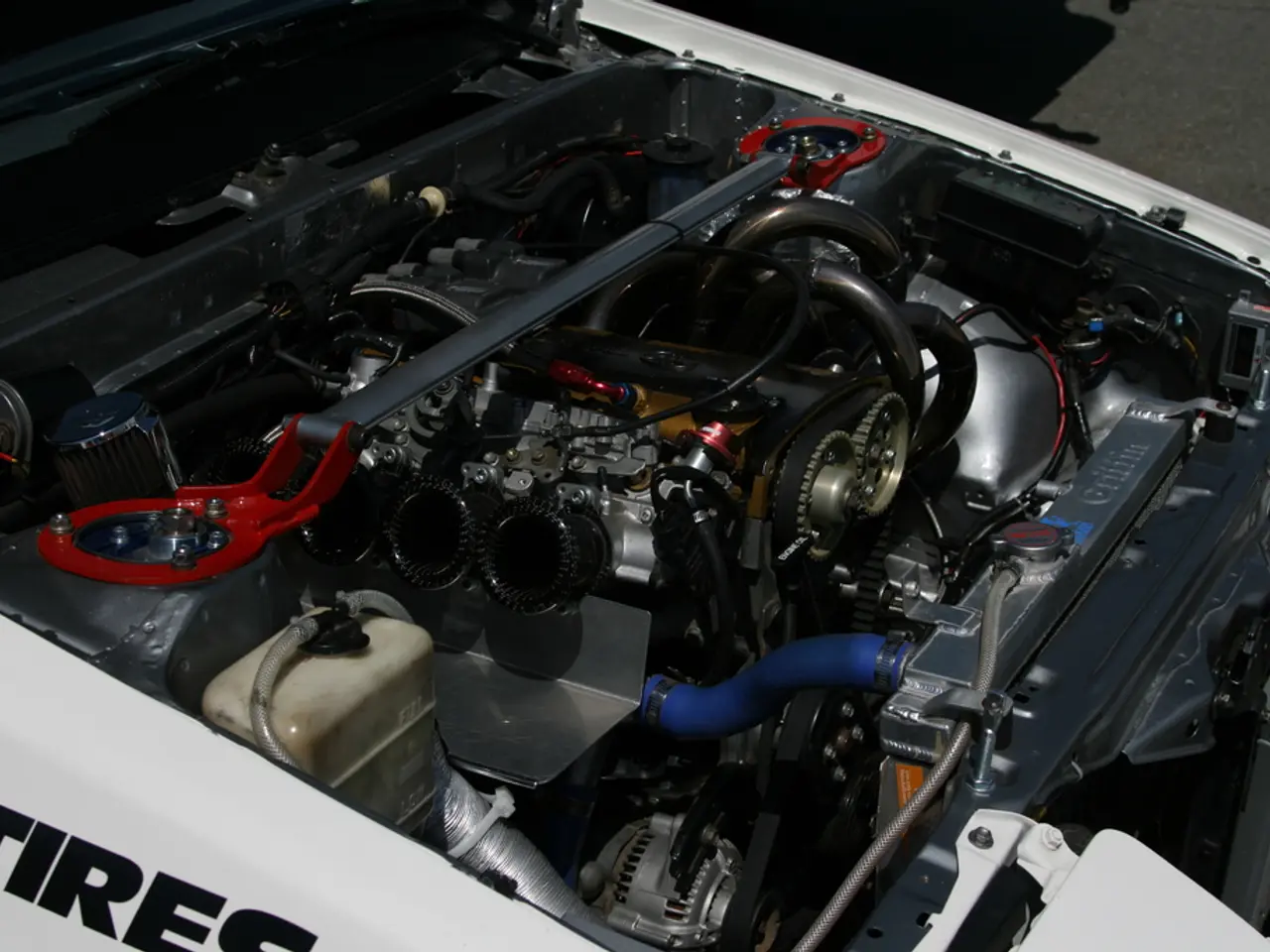Hydrogen production company Nel Hydrogen to establish plants in Michigan, partners with General Motors for green energy projects
In a significant move towards scaling up green hydrogen infrastructure in the United States, Nel Hydrogen is planning to construct a new gigafactory in Michigan. This state-of-the-art facility, designed for automated, high-capacity manufacturing of gigawatt-scale electrolyzers, will significantly boost Nel's capacity for hydrogen electrolysis equipment production.
Location and Scale
The planned gigafactory will be situated in Michigan, and it is intended to support the production of gigawatt-level hydrogen electrolyzers. This will make it one of the largest electrolyzer factories globally, capable of producing up to 4 gigawatts of hydrogen per year.
Partnerships
While specific partnerships for the factory have not been publicly announced, Samsung E&A's recent investment in Nel as a major shareholder signifies strong industrial backing for Nel's growth ambitions in hydrogen technology. This investment relationship could potentially contribute to financing or technology collaborations indirectly related to the gigafactory.
Financial Incentives
Michigan, like many states, offers substantial incentives to attract green manufacturing projects, including subsidies and tax breaks. However, the exact financial details for the plant have not been explicitly provided in the available sources.
Job Creation
The project is expected to create a significant number of jobs in the region, contributing to the reshoring efforts and revitalizing local manufacturing employment. Although the exact job numbers have not been stated, such "gigafactory" projects typically employ hundreds to over a thousand workers once operational.
Strategic Importance
The Michigan plant is part of a broader push in the U.S. to boost domestic manufacturing of clean energy technologies and reduce reliance on foreign supply chains, aligning with ongoing reshoring trends and government support for decarbonization industries.
Collaborations
Nel and General Motors are collaborating to make electrolyzers more efficient and less expensive. This partnership could potentially lead to advancements in hydrogen fuel cell vehicles, which are electric vehicles that rely on the chemical energy of hydrogen instead of lithium-ion batteries.
Government Support
Jennifer Granholm, the U.S. Energy Secretary, has emphasized the impact of the new plant in manufacturing, job creation, and clean energy on the grid. She stated that the Department of Energy (DOE) has advanced Nel's technology for nearly two decades. The DOE has also awarded over $35 million to an electrolyzer developer in Wallingford, which was later acquired by Nel in 2017.
Michigan's Green Credentials
Michigan has been making strides in the electric vehicle and battery sectors, becoming a top state for such investments. The state is also working with neighboring states to be part of a federal plan that will create regional networks of hydrogen producers, consumers, and infrastructure.
In conclusion, Nel Hydrogen's Michigan gigafactory is set to be a large, automated production hub for electrolyzers supporting green hydrogen. The project is expected to generate considerable local employment while benefiting from U.S. reshoring incentives and collaborating with industry leaders like General Motors. Specific financial details and partnerships beyond Samsung E&A’s shareholder role, as well as exact employment figures, were not available in the current sources.
- The upcoming regional networks of hydrogen producers in neighboring states could potentially provide fuel for Nel's gigafactory in Michigan.
- The Michigan gigafactory's production of hydrogen fuel cells could contribute significantly to the transition of the transportation industry towards clean energy, aiding in the mitigation of climate-change.
- The Michigan gigafactory's focus on innovation in hydrogen technology aligns with the growth and development of the environmental-science sector, as well as the broader tech industry.
- Despite the absence of explicit financial details, the potential for substantial revenue generation from the Michigan gigafactory's hydrogen production could make it an attractive venture for investors in the energy and real-estate sectors.
- The Michigan gigafactory's advancements in hydrogen technology could influence the efficiency and cost of hydrogen fuel cell vehicles, creating a ripple effect in the automotive industry.
- By producing clean energy through hydrogen fuel cells, the Michigan gigafactory will help to diversify the country's energy mix, moving away from reliance on traditional fossil fuels.
- The scaling up of green hydrogen infrastructure in the U.S. through initiatives such as the Michigan gigafactory is a testament to the government's commitment to sustainable and renewable-energy solutions.
- Green hydrogen, produced through renewable-energy sources like wind or solar, can power a wide range of business operations, from electricity generation to industrial applications, aiding in the transition to a cleaner and greener economy.




